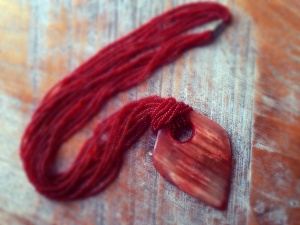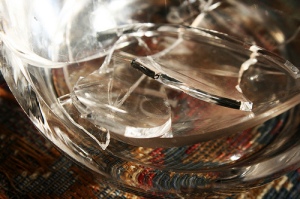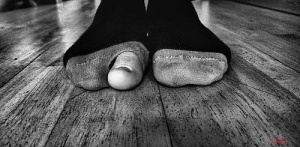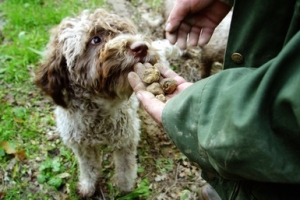 Ding dong!
Ding dong!
“There he is.” I smiled at Craig as I finished placing the freshly baked chocolate cookies on a plate. We walked to the front door together.
“Hello, Mr. White. Mrs. White. Good to see you.” The social worker placed his hand on the child beside him. “This is Benny.”
The boy stared down at his sneakers, which seemed too big for his body. He held a sagging plastic bag.
I kneeled down. “Hi Benny, I’m Karen. I’m so glad you’re here.” He avoided my eyes. When I touched his arm, he stiffened. For a second, I feared he would bolt.
“Please, come in.” Craig’s invitation reduced the tension of the first contact with our eight-year-old foster child. We were to be his third family in the four years since he saw his mom die from an overdose, and we were determined to be the last.
While Craig and the social worker completed paperwork, Benny sat on the edge of the couch, still studying his shoes and clutching his bag.
“I made chocolate cookies; do you want to try one?” I held out the plate.
After what seemed an eternity, he raised his hand, grabbed three cookies, and stuffed them in the pocket of his hoodie.
I cleared my throat. “Okay, these are for later. Why don’t you take another one for now?”
He shot me a glance, then took one more.
Craig saw the social worker to the door and came back with a ball and glove. “Hey Ben, would you like to play catch?”
“Sure.” The last cookie disappeared in his pocket.
From the window, I watched Benny trudge alongside Craig to the playground. Looks like a good start. I turned around to see his bag lying on the floor. I was about to bring it to his room when I thought better of it. We’ll do that together.
By the time Craig and Benny returned, I had started cooking, and food aromas filled the house. “Drumsticks and French fries—I hope you like it.”
Benny slumped into a chair.
“Honey, please, wash your hands first. Craig, can you show Benny the bathr—”
“Nooo!”
I almost dropped a dish as Benny sent the chair crashing to the floor.
“I hate you! I hate you!”
“Benny, what’s wrong?”
Craig reached for the boy, but Benny slapped him, ran to the couch, and seized his bag. “I won’t stay here! Tell Social Services to get me!”
“They’re closed at this hour, Benny. Why don’t you come and eat something?”
“No! I hate you!” He whacked the couch.
“You want to see your room?” Craig tried to distract him.
“I want to leave!” Tears streamed down his contorted face.
“We’ll see about that tomorrow. But if you don’t want to eat, I’ll bring you to your room so that you can sleep.” Craig picked him up, seemingly immune to the yelling and frantic kicking.
I followed them upstairs. When Craig put him down, Benny threw himself on the bed—shoes and all—and hid under the blankets, crying all the while.
Craig whispered, “I’ll eat something, then leave for my night shift. I’ll pray.”
The next moment, I found myself standing alone in the middle of the bedroom, its bright colors shouting failure.
God, I need You.
I sat down at the bedside and laid my hand on the crumpled heap of a child.
“Leave me alone!” He wriggled away from me.
“No, Benny, I won’t go anywhere when you’re so sad and upset. I’ll stay right here with you.”
The leering racing car on the bedspread seemed to mock me as I waited and prayed for a breakthrough. Finally, the sobs subsided.
Following a hunch, I asked, “Benny…may I hold you? I mean—like a baby?”
To my surprise, he pushed back the blankets and climbed on my lap. I held him in my arms and gently rocked him, until his body relaxed and he was fast asleep.
Carefully, I took off his shoes and pulled down the covers—revealing crushed chocolate cookies. I couldn’t help but smile as I wiped them from the bed and tucked Benny in. Then I bent down and planted a kiss on his forehead.
Dear Father, You loved us before we loved You. Please, now help us to love this child. Even if our love will be crushed…like a chocolate cookie, under the weight of his pain, we want to persist in loving him. Amen.
***
AUTHOR’S NOTES
This short fiction story was inspired by:
• “Removed,” a short film about foster care. See www.removedfilm.com and https://www.youtube.com/watch?v=lOeQUwdAjE0.
• An newspaper article about foster care. See http://www.volkskrant.nl/binnenland/verwaarloosde-en-misbruikte-kinderen-wie-helpt-ze-nog~a3889487/
Karen’s prayer refers to the following Bible verse: “In this is love, not that we have loved God but that he loved us and sent his Son to be the propitiation for our sins” (1 John 4:10 ESV).
photo credit: via photopin (license)









